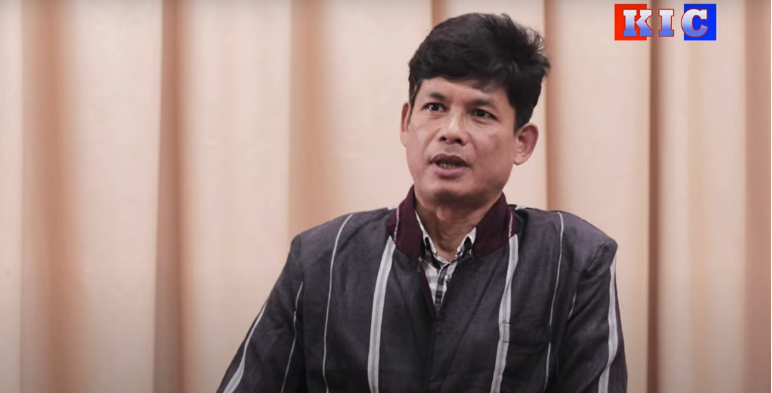An interview with Deputy In-charge of the CIDKP.
Following the coup, Karen State has seen the rising number of armed conflicts and the Internally Displaced People (IDPs) day by day. Till February 2023, there were over 500,000 IDPs in Kawthoolei and Karen State, according to the statement by the Karen Peace Support Network (KPSN).
The Committee of Internally Displaced Karen People (CIDKP), formed in 1998, is one of the organizations which are providing rations and other aids for the IDPs. So, the Karen Information Center (KIC) interviewed Saw Kelly, deputy in-charge of the CIDKP about the difference in the past and present situations about the IDPs and aid and the increasing number of the IDPs.
Q: First, May I know what is the CIDKP and in which area does the CIDKP emphasis?
A: The CIDKP is a committee formed for the ERA since 1998. Our aid reaches out to the areas other organizations cannot. Our major tasks are humanitarian aid, knowledge dissemination on mine danger, water and sanitation tasks and peace process.
Q: May I know of peace and rescue activities done and being done by the CIDKP?
A: At present, we are providing food, water, medicine and shelters for the IDPs from the south-east part of Myanmar, Bago Region (east), Karen State, Mon State and Tanintharyi Region. Since 2022 till date, the CIDKP has provided aid for over 200,000 IDPs.
Q: It is found that the military council has intensified its artillery shelling into civilian targets in Karen State. May I know the CIDKP’s view on the military council’s acts?
A: The military council should not do it. From the humanitarian point of view, the acts which disvalue the lives and properties of the public either by heavy weapons or by small arms are very terrible. If this situation continues, our regional development tasks will not go ahead by any means. There were no developments in the countries which have committed such acts against the public during civil wars. Myanmar has long been under armed conflicts for over 70 years. No progress is seen in any sector. Progress is very weak. The situation will remain unchanged if such targeted attacks on the public continue. An increase in the number of IDPs and the massive influx of youths to other countries is not a strange thing. The situation is becoming worse.
Q: What are the current difficulties in the delivery of humanitarian aid compared to that in 2022?
A: We have a lot of difficulties. In the past, the border areas were within our reach. Now there are a lot of places which are not within our reach. They (IDPs) are in need of aid. They cannot earn their living. Children cannot go to school. They face a lot of difficulties. We want to help them. However, they are not within our reach. The number of IDPs is increasing day by day. The public faces a lot of difficulties following a battle. For instance, farmers had to abandon their paddy fields as the fighting erupted during the harvesting season and in the rainy season. One year later, their accommodations are worrying. A person who earns his or her living finds it very difficult to stand on his or her own feet if he or she faces plights for one or two months. If this situation continues, the survival of people in a region is worrying. There are a lot of requirements due to the aforesaid situations even if the IDPs are within our reach.
Q: Can you tell me which region is mainly difficult for the delivery of aid?
A: The delivery of aid to Nyaunglebin district where the CIDKP is active is very difficult. Another one is the KNU’s Brigade-6 controlled Hpapun District. We face transportation difficulties and life-threatening situations. The rest is Dawei-Tanintharyi Region. We find it difficult to go to the said regions. We don’t get permission from local authorities. Transport of materials and cross-border aid is very difficult. We can provide aid for over 200,000 out of 500,000 IDPs in Karen State. There are still a lot of necessities.
Q: May I know your view on the increasing number of IDPs day by day?
A: An increase in the number of IDPs is a terrible sign. Even if the current war stops tomorrow, the reconstruction of houses and lives and standing on their own feet shall take a longer period of time. Here, the wars continue and the number of IDPs goes on the rise. The people across the country are highly likely to face more and more plights. The worst situation is that displaced children have no access to education. In my personal view, their livelihoods are worrying. Regional development is a far-cry. Their daily security is very worrying. What I want to add is we are trying to provide aid as much as we can. Due to various reasons, some regions are not within our reach. We are making all-out efforts to distribute aid securely. We are cooperating with other organizations to get international assistance.
Sent by Nant Hsan Htee (KIC).

